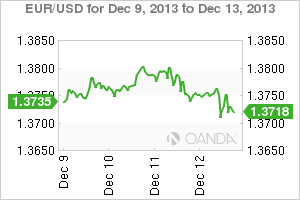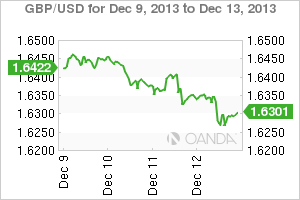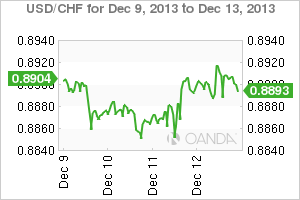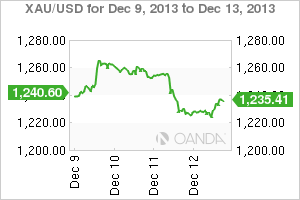Very little is expected to change on the central banks front for next year aside from the Fed, central banks are generally expected to stick with artificially low interest rates while pumping an unprecedented infusion of cash into the financial system.
As they search for new ways to stimulate liquidity to augment the stimulus measures they've enacted, central bank policymakers must also fight deflation, and as expected, these are the themes that will continue to dominate the European Central Bank's (ECB) train of thought as it has at the Bank of Japan (BoJ). Many foreign exchange (forex) participants and analysts are anticipating fiscal policy to be less of an impediment to U.S. growth in 2014. If so, it should allow the Federal Reserve to carefully navigate away from making asset purchases and reduce its massive $85-billion-a-month bond-buying program.
In 2013, the forex asset class managed to loiter within a contrived trading range policed by various central bank policies that, at times, led to a drop in both currency volume and volatility for painfully long stretches. The post-Lehman Brothers storm has now been replaced by a calmer period that continues to lack a badly needed injection of global corporate investment to help spur growth (think Japanese Prime Minister Shinzo Abe's third arrow problems, high unemployment in the eurozone, and tentative U.S. growth).
Please read more in Global Currencies Forecast: 2014
 |  |
 |  |